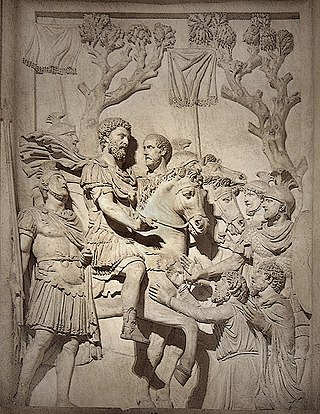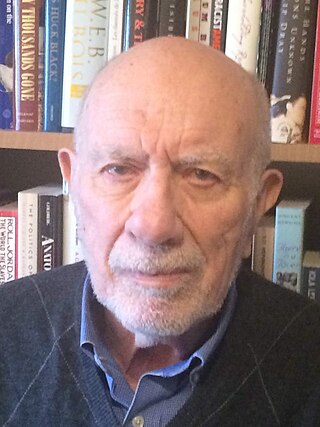
Beauty is commonly described as a feature of objects that makes these objects pleasurable to perceive. Such objects include landscapes, sunsets, humans and works of art. Beauty, together with art and taste, is the main subject of aesthetics, one of the major branches of philosophy. As a positive aesthetic value, it is contrasted with ugliness as its negative counterpart.

Forgiveness, in a psychological sense, is the intentional and voluntary process by which one who may initially feel victimized or wronged, goes through a change in feelings and attitude regarding a given offender, and overcomes the impact of the offense including negative emotions such as resentment and a desire for vengeance. Theorists differ, however, in the extent to which they believe forgiveness also implies replacing the negative emotions with positive attitudes. In certain legal contexts, forgiveness is a term for absolving or giving up all claims on account of debt, loan, obligation, or other claims.

Religious philosophy is philosophical thinking that is influenced and directed as a consequence to teachings from a particular religion. It can be done objectively, but may also be done as a persuasion tool by believers in that faith. Religious philosophy is concerned with the nature of religion, theories of salvation, conceptions of god, gods, and/or the divine.

William Lane Craig is an American analytic philosopher, Christian apologist, author, and Wesleyan theologian who upholds the view of Molinism and neo-Apollinarianism. He is currently a Professor of Philosophy at Houston Baptist University and a Research Professor of Philosophy at Biola University's Talbot School of Theology. Craig has updated and defended the Kalam cosmological argument for the existence of God. He has also published work where he argues in favor of the historical plausibility of the resurrection of Jesus. His study of divine aseity and Platonism culminated with his book God Over All.

Ian MacDougall Hacking is a Canadian philosopher specializing in the philosophy of science. Throughout his career, he has won numerous awards, such as the Killam Prize for the Humanities and the Balzan Prize, and been a member of many prestigious groups, including the Order of Canada, the Royal Society of Canada and the British Academy.

Nick Bostrom is a Swedish philosopher at the University of Oxford known for his work on existential risk, the anthropic principle, human enhancement ethics, whole brain emulation, superintelligence risks, and the reversal test. In 2011, he founded the Oxford Martin Program on the Impacts of Future Technology, and is the founding director of the Future of Humanity Institute at Oxford University. In 2009 and 2015, he was included in Foreign Policy's Top 100 Global Thinkers list.

Robert Paul Wolff is an American political philosopher and professor emeritus at the University of Massachusetts Amherst.
David Berlinski is an American author who has written books about mathematics and the history of science as well as fiction. An opponent of evolution, he is a senior fellow of the Discovery Institute's Center for Science and Culture, an organization which promotes the pseudoscience of intelligent design.
Experimental philosophy is an emerging field of philosophical inquiry that makes use of empirical data—often gathered through surveys which probe the intuitions of ordinary people—in order to inform research on philosophical questions. This use of empirical data is widely seen as opposed to a philosophical methodology that relies mainly on a priori justification, sometimes called "armchair" philosophy, by experimental philosophers. Experimental philosophy initially began by focusing on philosophical questions related to intentional action, the putative conflict between free will and determinism, and causal vs. descriptive theories of linguistic reference. However, experimental philosophy has continued to expand to new areas of research.
A mental state, or a mental property, is a state of mind of a person. Mental states comprise a diverse class, including perception, pain experience, belief, desire, intention, emotion, and memory. There is controversy concerning the exact definition of the term. According to epistemic approaches, the essential mark of mental states is that their subject has privileged epistemic access while others can only infer their existence from outward signs. Consciousness-based approaches hold that all mental states are either conscious themselves or stand in the right relation to conscious states. Intentionality-based approaches, on the other hand, see the power of minds to refer to objects and represent the world as the mark of the mental. According to functionalist approaches, mental states are defined in terms of their role in the causal network independent of their intrinsic properties. Some philosophers deny all the aforementioned approaches by holding that the term "mental" refers to a cluster of loosely related ideas without an underlying unifying feature shared by all. Various overlapping classifications of mental states have been proposed. Important distinctions group mental phenomena together according to whether they are sensory, propositional, intentional, conscious or occurrent. Sensory states involve sense impressions like visual perceptions or bodily pains. Propositional attitudes, like beliefs and desires, are relations a subject has to a proposition. The characteristic of intentional states is that they refer to or are about objects or states of affairs. Conscious states are part of the phenomenal experience while occurrent states are causally efficacious within the owner's mind, with or without consciousness. An influential classification of mental states is due to Franz Brentano, who argues that there are only three basic kinds: presentations, judgments, and phenomena of love and hate.
Elliott R. Sober is Hans Reichenbach Professor and William F. Vilas Research Professor in the Department of Philosophy at University of Wisconsin–Madison. Sober is noted for his work in philosophy of biology and general philosophy of science.
The Chair of Moral Philosophy is a professorship at the University of Glasgow, Scotland, which was established in 1727.

Forgiveness and Love is a 2012 book by Glen Pettigrove, in which the author explores the nature and norms of forgiveness and examines the relationship between forgiving, understanding, and loving.

Gualtiero Piccinini is an Italian–American philosopher known for his work on the nature of mind and computation as well as on how to integrate psychology and neuroscience. He is Curators' Distinguished Professor in the Philosophy Department and Associate Director of the Center for Neurodynamics at the University of Missouri, St. Louis.

Michael Huemer is a professor of philosophy at the University of Colorado, Boulder. He has defended ethical intuitionism, direct realism, libertarianism, veganism, and philosophical anarchism.
Jon Mills is a Canadian philosopher, psychoanalyst, and clinical psychologist. His principle theoretical contributions have been in the philosophy of the unconscious, a critique of psychoanalysis, philosophical psychology, value inquiry, and the philosophy of culture. His clinical contributions are in the areas of attachment pathology, trauma, psychosis, and psychic structure.

Ilaria L. E. Ramelli is an Italian-born historian, academic author, and university professor who specializes in ancient, late antique, and early mediaeval philosophy and theology.
Tzachi Zamir is an Israeli philosopher and literary critic specialising in the philosophy of literature, the philosophy of theatre, and animal ethics. He is Professor of English and General & Comparative Literature at the Hebrew University of Jerusalem.
Dutch philosophy is a broad branch of philosophy that discusses the contributions of Dutch philosophers to the discourse of Western philosophy and Renaissance philosophy. The philosophy, as its own entity, arose in the 16th and 17th centuries through the philosophical studies of Desiderius Erasmus and Baruch Spinoza. The adoption of the humanistic perspective by Erasmus, despite his Christian background, and rational but theocentric perspective expounded by Spinoza, supported each of these philosopher's works. In general, the philosophy revolved around acknowledging the reality of human self-determination and rational thought rather than focusing on traditional ideals of fatalism and virtue raised in Christianity. The roots of philosophical frameworks like the mind-body dualism and monism debate can also be traced to Dutch philosophy, which is attributed to 17th century philosopher René Descartes. Descartes was both a mathematician and philosopher during the Dutch Golden Age, despite being from the Kingdom of France. Modern Dutch philosophers like D.H. Th. Vollenhoven provided critical analyses on the dichotomy between dualism and monism.











